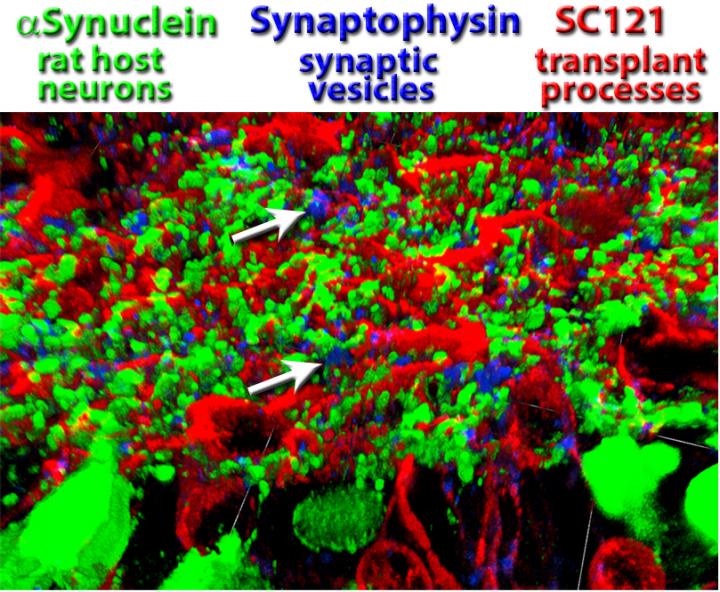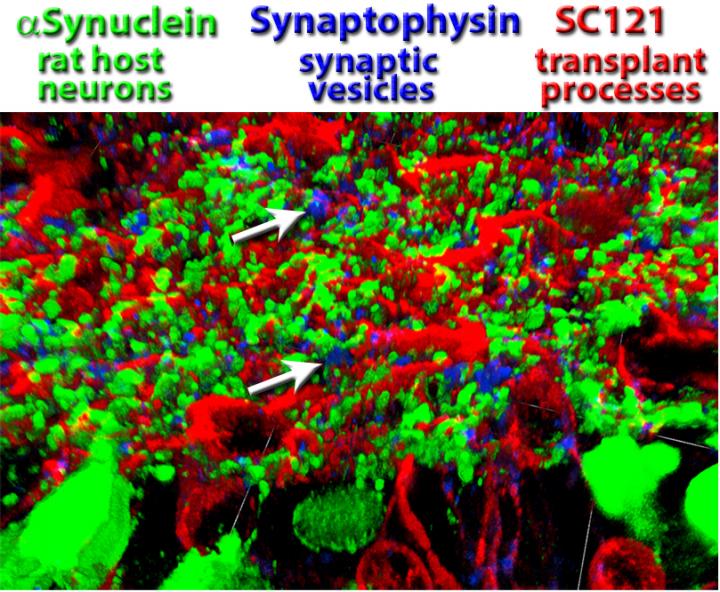
Credit: UCI, Seiler Lab
University of California, Irvine stem cell researcher Magdalene J. Seiler, PhD, has received a $4.8 million grant from the California Institute of Regenerative Medicine (CIRM) to continue developing a stem cell-based therapy for a vision-robbing eye disease, retinitis pigmentosa. The therapy may also be applicable to macular degeneration.
"Our goal is a treatment based on transplanting sheets of stem-cell derived retina, called retina organoids, to the back of the eye," said Seiler, an assistant professor in the Department of Physical Medicine & Rehabilitation, UCI School of Medicine, and a researcher with the Sue & Bill Gross Stem Cell Research Center. "Advanced stages of this disease show irreversible loss of photoreceptors, the light-sensing cells in the back of the eye, and patients gradually go blind."
Retinitis pigmentosa and age-related macular degeneration lead to the incurable loss of vision in millions of people. No traditional therapy can restore advanced stages of retinal degeneration due to the irrevocable loss of photoreceptors. While retinitis pigmentosa (RP) is designated an orphan disease by the FDA, age-related macular degeneration (AMD) is among the leading causes of blindness in adults over age 65.
Since 1995, Seiler and her team have pursued promising research into the development and use of retinal sheet transplantation, using a unique patented implantation instrument and procedure which has demonstrated improvement in visual responses in four different retinal degeneration models.
"The aim is to replace damaged photoreceptors with the hope of re-establishing neural circuitry within the eye," Seiler said.
In 2014, Seiler and colleagues received a CIRM grant to develop human embryonic stem cells for transplantable 3-D sheets of retinal cells for vision restoration. Their work, published in Investigative Ophthalmology & Visual Science, demonstrated that stem-cell derived retina can improve visual responses in two different immunodeficient rat models with retinal degeneration that do not reject human cells.
Seiler's previous research led to Phase I and II clinical trials that demonstrated visual improvement after transplantation of sheets containing fetal retina with its retinal pigment epithelium in patients with RP and AMD, a condition that robs central vision due to retinal damage. A September 2018 study published in Experimental Eye Research showed that transplants of the tissue used in previous clinical trials developed mature photoreceptors and restored visual responses in the brain. Seiler's current research aims to discover whether a more readily available source of cells, CSC-14 human embryonic stem cells, can replace the fetal source used in her prior work.
In May 2018, the Seiler lab published a retinal sheet transplantation study in Investigative Ophthalmology & Visual Science which showed that transplanted human embryonic stem cell (hESC)-derived retinal sheets differentiated, integrated and improved visual function in a rat model of retinal degeneration using the same tissue that will be applied for the new grant project. Researchers used two methods to test visual function, testing for visual acuity and electrophysiological responses in the brain after stimulation with light. In both instances, stem-cell derived retinas significantly improved visual function. The stem cell-derived tissues developed into different retinal cells, including photoreceptors, and developed contacts between transplant and host cells, see image below.
###
Funding for the new grant comes from CIRM Translational Award TRAN1-10995 entitled "Morphological and functional integration of stem cell derived retina organoid sheets into degenerating retina models."
The UCI Sue & Bill Gross Stem Research Center was established in 2010 and is a leader in regenerative medicine. Its pioneering research into stem cell therapies include neurodegenerative diseases such as, ALS, Huntington's and Alzheimer's diseases, spinal cord and traumatic brain injury, T1D, stroke, ESRD, GBM, thermal burns, the degenerative eye disease retinitis pigmentosa, multiple sclerosis and other debilitating conditions.
About the University of California, Irvine: Founded in 1965, UCI is the youngest member of the prestigious Association of American Universities. The campus has produced three Nobel laureates and is known for its academic achievement, premier research, innovation and anteater mascot. Led by Chancellor Howard Gillman, UCI has more than 30,000 students and offers 192 degree programs. It's located in one of the world's safest and most economically vibrant communities and is Orange County's second-largest employer, contributing $5 billion annually to the local economy. For more on UCI, visit http://www.uci.edu.
Media access: Radio programs/stations may, for a fee, use an on-campus ISDN line to interview UCI faculty and experts, subject to availability and university approval. For more UCI news, visit news.uci.edu. Additional resources for journalists may be found at communications.uci.edu/for-journalists.
Media Contact
John Murray
[email protected]
714-456-7759
@UCIrvine
http://www.uci.edu





